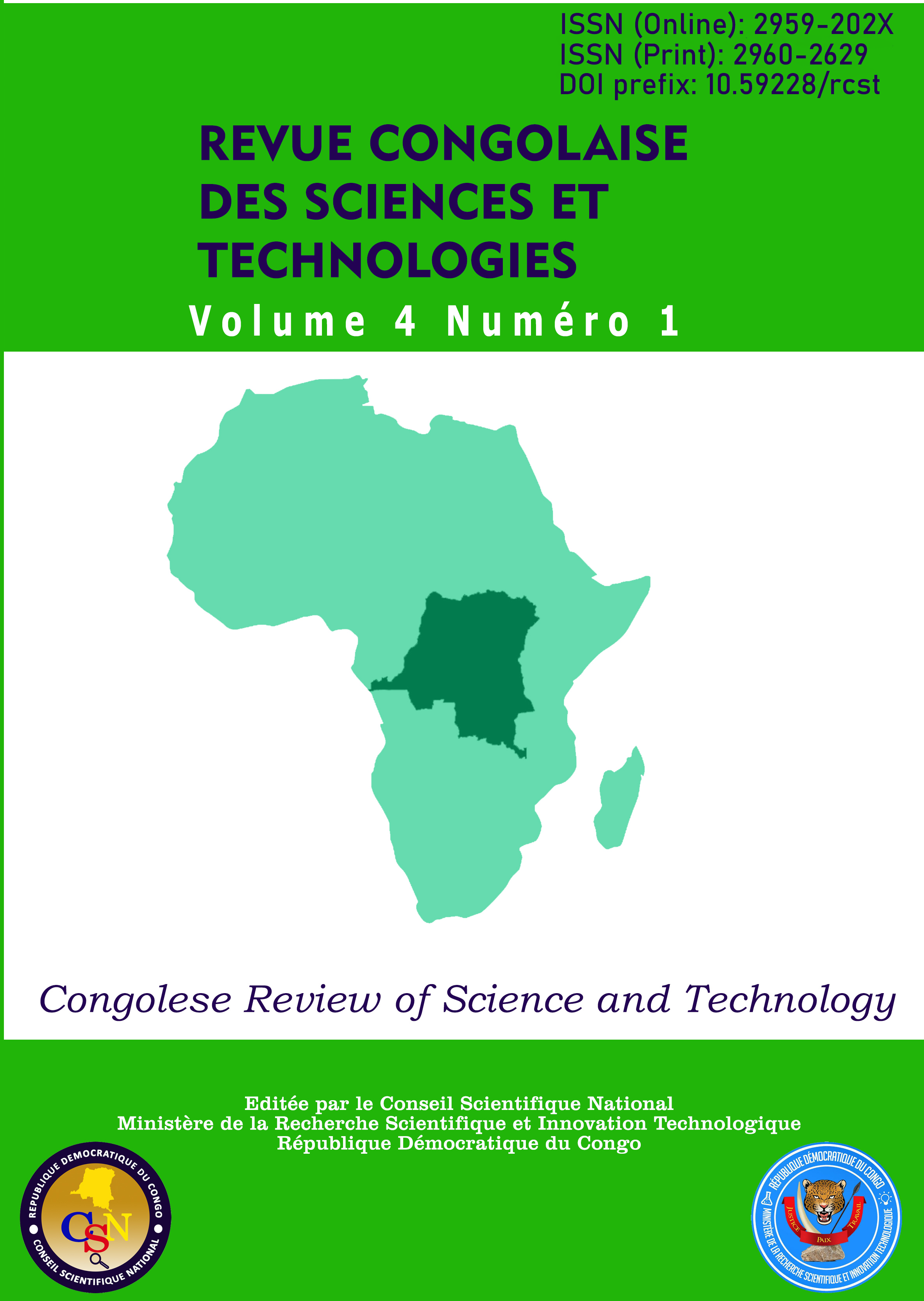Determinants of poor biomedical waste management in health facilities in the Kikwit-Sud Health Zone, Democratic Republic of Congo
Main Article Content
Abstract
The Kikwit-Sud health zone, like many other health zones in the Democratic Republic of Congo, faces major challenges in biomedical waste management. Public and private health facilities are often ill-equipped to manage the waste they generate. They face problems such as inadequate collection and storage infrastructures, lack of staff training and awareness-raising, absence of structured management plans, and non-application of national and international directives on biomedical waste management. The aim of this cross-sectional study was to identify the determinants of poor biomedical waste management in state-run health facilities in the Kikwit-sud health zone, using a quantitative, analytical approach based on 263 healthcare providers selected by means of probability sampling. The results of this study revealed that 45.2% of the providers surveyed were aged between 42 and 53, 63.1% were women and 36.9% men. The majority (96.2%) have not yet received training in biomedical waste management.
Article Details
Section

This work is licensed under a Creative Commons Attribution-NonCommercial-ShareAlike 4.0 International License.
References
Agarwal, A., Yadav, A., Yadav, C., Mahore, R., Singh, A. (2022). A study of awareness about biomedical waste management among health care personnel. Asian J Manag, 13(7), 171-175. DOI:10.52711/2321-5763.2022.00031
Bansod, H.S. & Deshmukh, P. (2023). Biomedical Waste Management and Its Importance: A Systematic Review. Cureus, 15(2) e34589. DOI: 10.7759/cureus.34589
Benhaddou, N., Safae, A., Yudania, S., Jacob, A.A., Ignacio, B., Romero, M.G., Sergio, G. (2020). Investigation on limiting factors affecting Cu2ZnGeSe4 efficiency: Effect of annealing conditions and surface treatment. Solar Energy Materials and Solar Cells, 210 (4) 110701. https://doi.org/10.1016/j.solmat.2020.110701
Endris, S., Tamir, Z., Sisay, A. (2022). Medical laboratory waste generation rate, management practices and associated factors in Addis Ababa, Ethiopia. PLoS One, 17(1), e0266888. DOI: 10.1371/journal.pone.0266888.
Gautam, V., Thapar, R., Sharma, M. (2010). Biomedical waste management: incineration vs. environmental safety. Indian J Med Microbiol, 28(3) ,191-202. DOI: 10.4103/0255-0857.66465.
Misra, V. & Pandey S.D. (2005). Hazardous waste, impact on health and environment for development of better waste management strategies in future in India. Environment International, 31(10):417-31.
Nath, P.A, Prashanthini, V, Visvanathan, C. (2010). Healthcare waste management in Asia. Waste Management, 30(3) ,154-161.
Rao, D., Dhakshaini, M.R., Kurthukoti, A., Doddawad, V.G. (2018). Biomedical Waste Management: A Study on Assessment of Knowledge, Attitude and Pratices Among Health Care Professionals in a Tertiary Care Teaching Hospital. Biomed Pharmacol J, 11(3) ,57-66.
Sahiledengle, B. (2019). Self-reported healthcare waste segregation practice and its correlate among healthcare workers in hospitals of Southeast Ethiopia. BMC Health Serv Res, 19(4) ,591-606. 10.1186/s12913-019-4439-9 17.
Salvi, S.S., Waghmare, S., Thombare, V., Mandlik, S., Veer, S., Walke, P., Zambare, P. (2022). Review on biomedical waste management. Int J Eng Res Technol, 11(7) ,63-69.
Singhal, L., Tuli, A.K., Gautam, V. (2017). Biomedical waste management guidelines 2016: what's done and what needs to be done. Indian J Med Microbiol, 35(12), 194-208. DOI:10.4103/ijmm.IJMM_17_105.
Stéphane, T. (2015). Modélisation prédictive et apprentissage statistique avec R. Paris, Editions TECHNIP.

